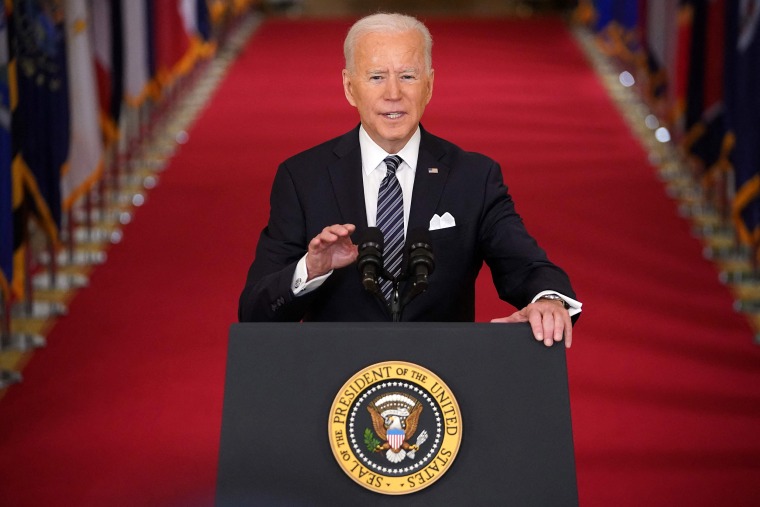It was on March 11, 2020, when Donald Trump delivered a White House address on the coronavirus crisis. It did not go well -- largely because the Republican, despite reading from a prepared script, repeatedly described his own policies in ways that were untrue.
The then-president, for example, said his administration was "suspending all travel from Europe," which wasn't actually the administration's policy at the time. Trump also said that his new prohibitions would apply to "tremendous amount of trade and cargo," prompting White House officials to "scramble" to "fix his apparent misstatement." He went to boast that the health insurance industry had agreed to waive "all co-payments for coronavirus treatments," which also wasn't true.
What's more, Trump's inability to get the details right wasn't the only problem. The then-president stoked nativist tensions by labeling COVID-19 a "foreign virus" that "started in China"; he offered very little in the way of a policy vision for addressing the intensifying pandemic; and the Republican failed spectacularly to reassure Americans during a public-health crisis that he was up to the task at hand.
Many of those watching on March 11, 2020, ended up feeling even greater anxiety about the tragedies that were about to unfold -- even as the then-president boasted that "the risk is very, very low" for "the vast majority of Americans," boasts that seem especially cruel now.
Exactly one year to the day later, his successor delivered a very different kind of speech on the pandemic.
President Joe Biden announced Thursday that he will direct states to make all adults eligible for coronavirus vaccinations no later than May 1, a move that he said could help the United States return to some sense of normalcy by Independence Day. In his address marking the anniversary of the coronavirus pandemic shutdowns, Biden offered the country a somber reflection on a year tainted by grief and devastation while providing a renewed sense of hope that a post-pandemic future is near if Americans do their part.
Biden set realistic goals, expressed empathy for those who've lost so much, took care to condemn "vicious hate crimes against Asian Americans," and called on all Americans to do their part in our collective efforts.
"I promise I will do everything in my power, I will not relent until we beat this virus, but I need you, the American people," Biden said. "I need you. I need every American to do their part. And that's not hyperbole. I need you. I need you to get vaccinated when it's your turn and when you can find an opportunity, and to help your family and friends and neighbors get vaccinated as well."
Ahead of last night's White House speech, I revisited Trump's remarks in order to get a better sense of context and perspective. It seemed to me that the two could serve as rhetorical bookends -- one president addressing the nation toward the beginning of the crisis, another president addressing the nation as the crisis (hopefully) reaches the final stretch.
But in the process, the differences between the two men and their capacity to lead came into sharp relief.
As Rachel put it on last night's show, "It matters, I think, that we did finally, finally get a real presidential address on COVID -- a real presidential address that made sense, that was rooted in empathy, and that explained even complex things truthfully and with nuance. It feels revolutionary after what we have been through."
